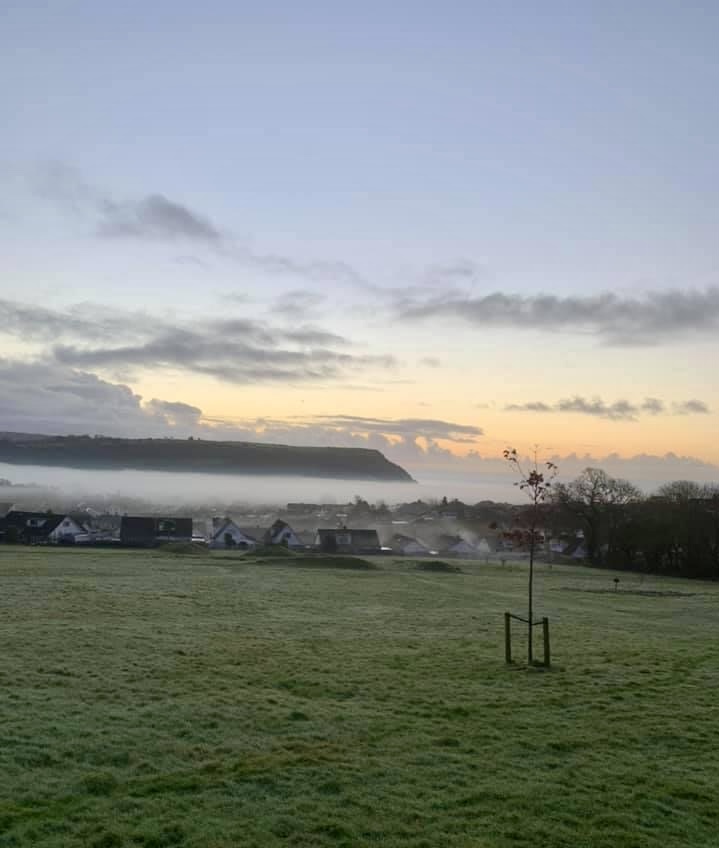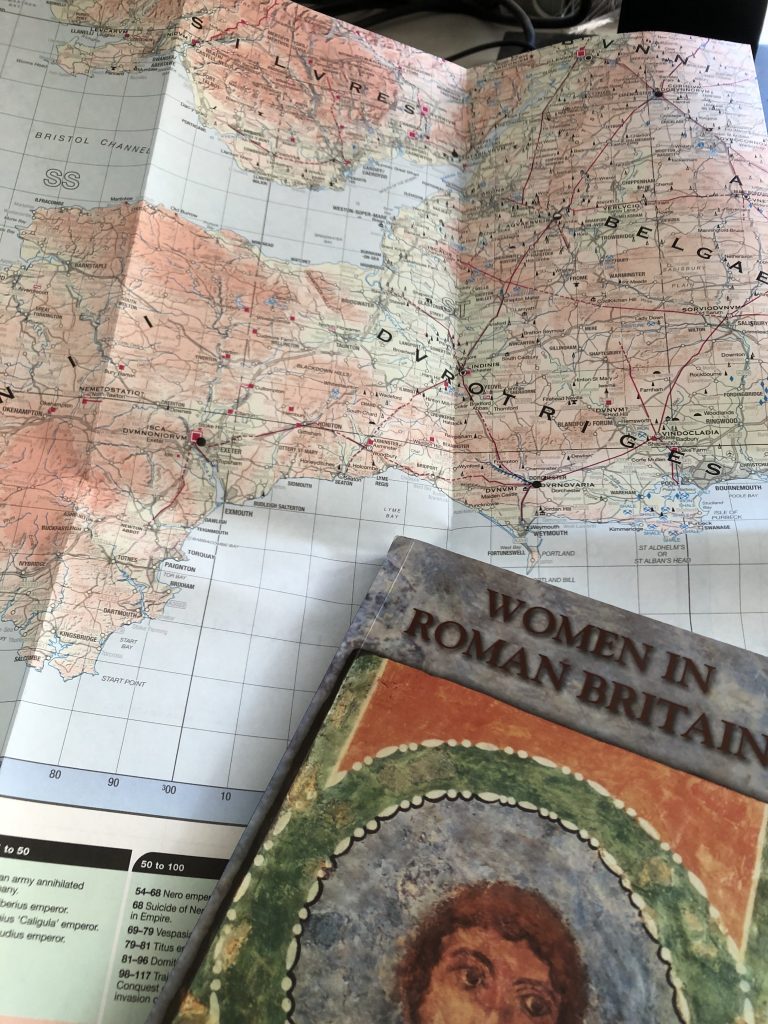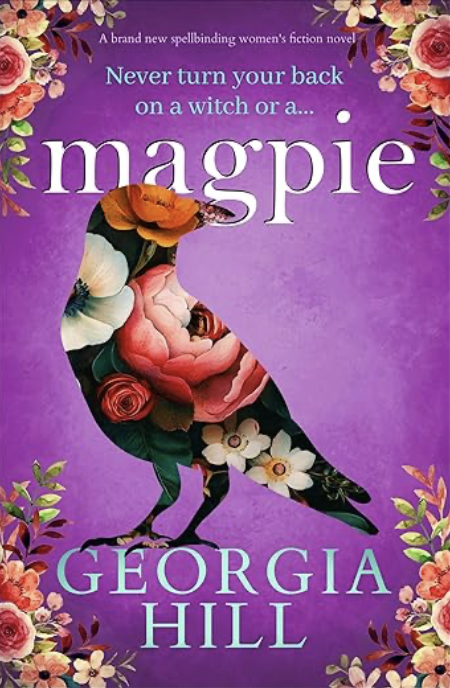I began The Sea Glass Necklace some years ago. It was a book I loved writing and it’s in a genre I love to read – dual narrative, lots of history, a little spookiness and romance.
The idea began coming together when I discovered the field in which we walk our dogs is the site of a large Roman villa estate. Even though prime development land, having superb views over the town and sea, it’s never been built on. Every now and again, a team pops by, excavate, fill in the holes and disappear. They leave odd bumps and hollows which intrigue the dogs.
I’ve long been fascinated by Roman history. Visits to Wroxeter, Caerleon, York, Bath, Hadrian’s Wall and St Albans only cemented this. To me it’s always seemed a very vivid period in our history, despite happening so long ago.
Then I came across the story of the Seaton Down Horde. A detectorist uncovered an enormous horde of Roman coins in a field. I went to see the exhibit in the Royal Albert Memorial Museum in Exeter and attended a local history talk on the subject. I was glad I’d got the research right – but one thing I’ve got very wrong is the weight of the coins. They weigh a ton!
All these fragments were beginning to coalesce. It’s been mentioned before that writers are magpies, gathering little goodies and snippets of information just in case something workable evolves. In this case a novel was most definitely beginning to emerge.
But there was a problem. With dual narratives, it’s always tricky finding what connects the two heroines. In On a Falling Tide it was an ammonite fossil. In Sea Glass it was almost impossible to link the two women in the book, seeing as they are separated by nearly two thousand years. I had to rely on hints of the supernatural but I still had the problem of how Juno, my contemporary heroine, could find out exactly what had happened to Romano-Briton Flavia. Archaeology can only tell us so much. As the lovely Tom points out in the book, archaeology depends on scientific evidence and doesn’t tell the whole story.
When literary agent Robbie Guillory pointed me in the direction of curse tablets I knew I had my missing link. These were what Romans bought to express their grievances, petty and otherwise, against those who had wronged them. There are scores in the museum in the Roman Baths in Bath. They give us so much information about what life was like then.
So just what did Juno discover about Flavia? You’ll have to read the book to find out!
It’s out now, in paperback and e-pub and I’m thrilled it’s finally out there.
Love,
Georgia x






I can understand why you find such a site inspiring.